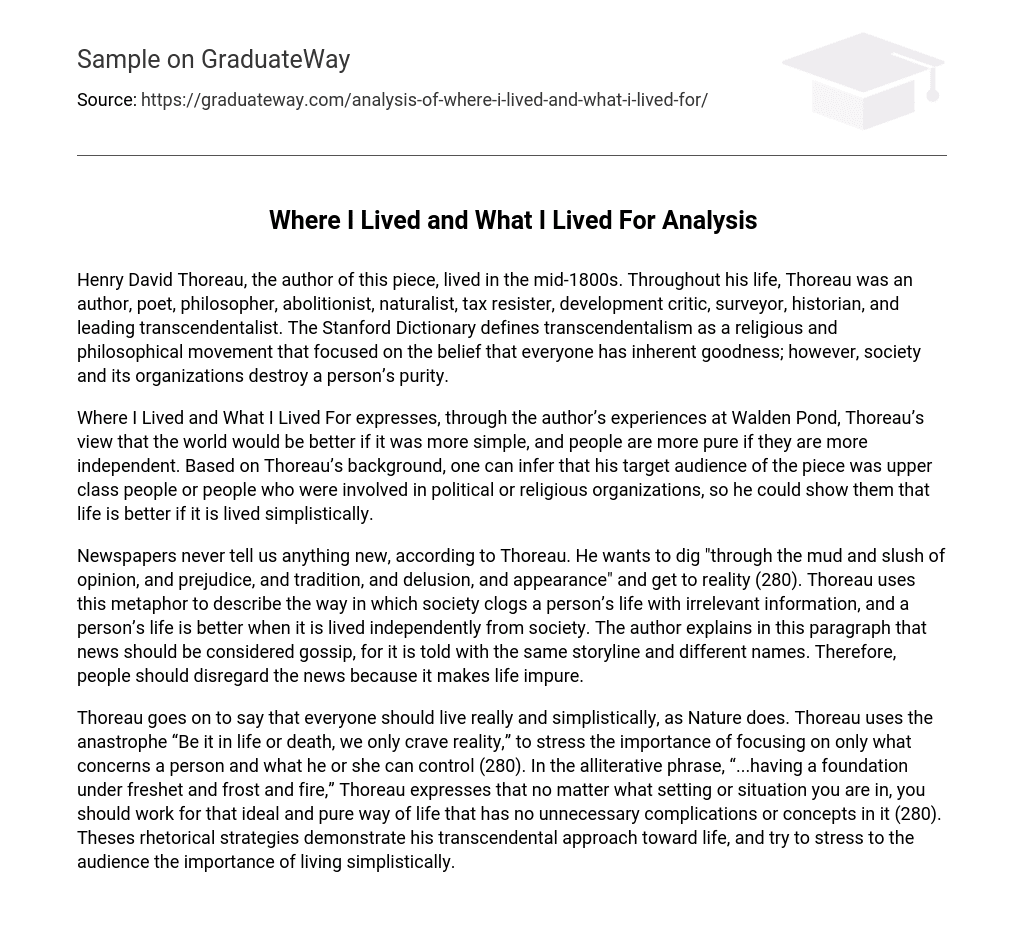Henry David Thoreau, the author of this piece, lived in the mid-1800s. Throughout his life, Thoreau was an author, poet, philosopher, abolitionist, naturalist, tax resister, development critic, surveyor, historian, and leading transcendentalist. The Stanford Dictionary defines transcendentalism as a religious and philosophical movement that focused on the belief that everyone has inherent goodness; however, society and its organizations destroy a person’s purity.
Where I Lived and What I Lived For expresses, through the author’s experiences at Walden Pond, Thoreau’s view that the world would be better if it was more simple, and people are more pure if they are more independent. Based on Thoreau’s background, one can infer that his target audience of the piece was upper class people or people who were involved in political or religious organizations, so he could show them that life is better if it is lived simplistically.
Newspapers never tell us anything new, according to Thoreau. He wants to dig “through the mud and slush of opinion, and prejudice, and tradition, and delusion, and appearance” and get to reality (280). Thoreau uses this metaphor to describe the way in which society clogs a person’s life with irrelevant information, and a person’s life is better when it is lived independently from society. The author explains in this paragraph that news should be considered gossip, for it is told with the same storyline and different names. Therefore, people should disregard the news because it makes life impure.
Thoreau goes on to say that everyone should live really and simplistically, as Nature does. Thoreau uses the anastrophe “Be it in life or death, we only crave reality,” to stress the importance of focusing on only what concerns a person and what he or she can control (280). In the alliterative phrase, “…having a foundation under freshet and frost and fire,” Thoreau expresses that no matter what setting or situation you are in, you should work for that ideal and pure way of life that has no unnecessary complications or concepts in it (280). Theses rhetorical strategies demonstrate his transcendental approach toward life, and try to stress to the audience the importance of living simplistically.





